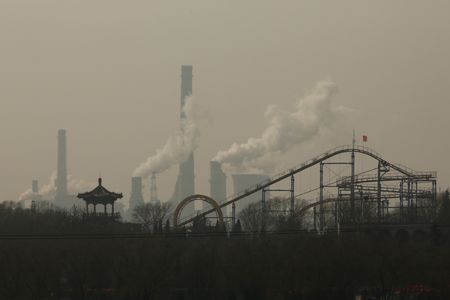 1
1 1
1

BEIJING (Reuters) – China’s environment ministry has slammed firms for falsifying carbon data, part of the country’s efforts to improve data quality as it prepares to expand its national emissions trading scheme into more industrial sectors.
The findings published on Monday follow a campaign launched by the Ministry of Ecology and Environment (MEE) in October-December last year aimed at ascertaining the accuracy of carbon emission verification reports submitted across the country.
“Accurate and reliable data is the lifeline for the effective and standardized operation of the carbon emissions trading market,” the MEE said in a statement on Monday.
China, the world’s biggest greenhouse gas emitter, put its repeatedly delayed national emission trading scheme (ETS) into operation in July last year. But the transparency and accuracy of emissions data remain a big concern for Beijing as well as the market’s participants.
Four data verification firms – Zhongchuang Nengtou Co, SinoCarbon Innovation & Investment Co, Qingdao Xinuo Renewable Co and Liaoning Dongmei Testing and Analysis Research Institute – were charged by the ministry with “tampering with and forging test reports”, “making false coal samples”, and “writing distorted and inaccurate conclusions”.
Reuters could not immediately reach the four companies by telephone.
The MEE also said it will urge local environment bureaus to continue investigating the four firms and will further strengthen the supervision and management of carbon data verification companies.
China’s current ETS currently includes about 2,000 enterprises in the power sector, which emit close to 4.5 billion tonnes of carbon dioxide each year, or 40% of the country’s total.
The government is considering slashing the carbon emission allowances to power utilities to avoid a market surplus, and it is also expected to widen market coverage to include emitters from sectors such as steelmaking.
(Reporting by Muyu Xu and David Stanway)